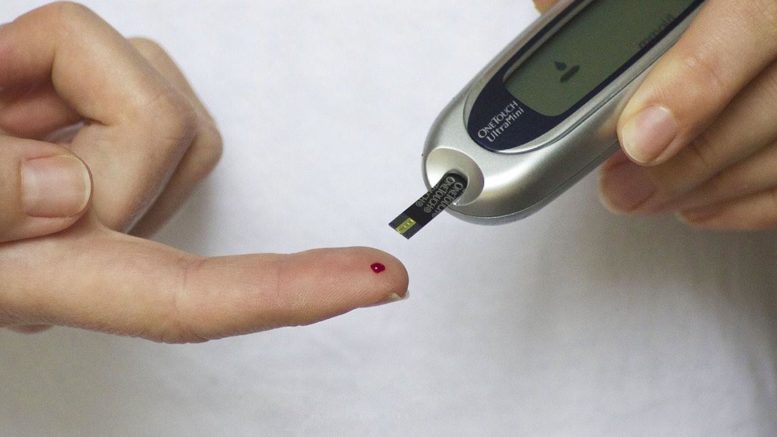Can CBD help in the management of diabetes? Regardless if you have type 1 or type 2 diabetes, you might just get the right support from CBD for healthy bodily functions and promoting more optimal blood sugar levels.
According to the World Health Organization (WHO), 422 million people worldwide suffer from diabetes. This chronic metabolic disease can sometimes develop early in life. Nowadays, more and more adults are developing type 2 diabetes. Diabetics should maintain a healthy lifestyle to keep their blood sugar in control. One tool that’s attracting attention to support blood sugar levels is cannabidiol (CBD).
Whether you want to combat any specific neuropathic pain by using a CBD topical, or you want to multiply the benefits with CBD oil UK. We hope reading this will help you understand how CBD helps in the management of diabetes.
CBD and Diabetes
CBD is derived from the cannabis plant. It is one of the many compounds that is not psychoactive – meaning it doesn’t get you high. It closely works with the body’s natural communication system called the Endocannabinoid System (ECS) to help restore balance.
In the case of diabetes, the ECS sets the sensitivity of the insulin response in adipocytes, according to an article from the Obesity Research Journal. This means that the ECS can have a much larger impact on how our bodies respond to insulin.
Several studies support the idea that CBD helps in the management and treatment of diabetic symptoms. A study conducted on non-obese diabetic (NOD) mice revealed that CBD can significantly reduce the incidence of diabetes in NOD mice by 86 percent.
While researchers are still awaiting more concrete evidence to support CBD as a treatment for diabetes, here are some ways it may help.
Use of CBD for Diabetes
There are numerous positive links between CBD and diabetes including:
1. Prevention
CBD can prevent diabetes from occurring in the first place. People who are diagnosed with type 2 diabetes often experience high fasting insulin levels, insulin resistance, and also low levels of high-density lipoprotein (HDL) cholesterol.
According to research, the use of cannabis or hemp regularly can lower fasting insulin levels by 16 percent and insulin resistance levels by 17 percent. Also, past users of cannabis demonstrated having better insulin resistance, fasting insulin, and cholesterol.

2. Decreases Inflammation
Although inflammation is a natural immune response that’s meant to protect the body, too much inflammation in the pancreas can damage the insulin-producing cells. CBD is known to lower pancreatic inflammation that potentially inhibits the development of diabetes.
An abstract revealed that CBD oil treatment reduced inflammation markers. CBD has also shown positive effects on several inflammation markers.
3. Manages Insulin Resistance
One of the key factors in prediabetes and type 2 diabetes is insulin resistance. It occurs when the body’s cells reject insulin leading to scattered absorption of glucose (sugar), which is needed for energy. Eventually, glucose builds up in the bloodstream and leads to high blood sugar levels.
Chronic inflammation can lead to insulin resistance. Hence, experts say that reduced inflammation can improve cell growth and sugar metabolism. Some researchers also believe that CBD may treat insulin resistance due to its anti-inflammatory properties.
4. Prevents Obesity
One of the popular risk factors for type 2 diabetes is obesity. Study shows that cannabis use is linked to a lower body mass index (BMI) and decreased obesity levels.
Further, CBD facilitates the process of fat browning, which involves the conversion of white fat into brown fat. Since white fat stores calories and brown fat burns calories, CBD helps burn calories more efficiently.
5. Treats Neuropathy
Another common occurrence for people struggling with diabetes is neuropathy or nerve damage. The common symptoms of diabetic neuropathy include numbness, pain, and tingling. CBD has shown to effectively suppress chronic inflammatory and neuropathic pain, according to a study.
Researchers believe CBD may protect the liver from oxidative stress, which contributes to the development of neuropathy.
Can CBD help in the management of diabetes? Regardless if you have type 1 or type 2 diabetes, you might just get the right support from CBD for healthy bodily functions and promoting more optimal blood sugar levels.
According to the World Health Organization (WHO), 422 million people worldwide suffer from diabetes. This chronic metabolic disease can sometimes develop early in life. Nowadays, more and more adults are developing type 2 diabetes. Diabetics should maintain a healthy lifestyle to keep their blood sugar in control. One tool that’s attracting attention to support blood sugar levels is cannabidiol (CBD).
Whether you want to combat any specific neuropathic pain by using a CBD topical, or you want to multiply the benefits with CBD oil UK. We hope reading this will help you understand how CBD helps in the management of diabetes.
CBD and Diabetes
CBD is derived from the cannabis plant. It is one of the many compounds that is not psychoactive – meaning it doesn’t get you high. It closely works with the body’s natural communication system called the Endocannabinoid System (ECS) to help restore balance.
In the case of diabetes, the ECS sets the sensitivity of the insulin response in adipocytes, according to an article from the Obesity Research Journal. This means that the ECS can have a much larger impact on how our bodies respond to insulin.
Several studies support the idea that CBD helps in the management and treatment of diabetic symptoms. A study conducted on non-obese diabetic (NOD) mice revealed that CBD can significantly reduce the incidence of diabetes in NOD mice by 86 percent.
While researchers are still awaiting more concrete evidence to support CBD as a treatment for diabetes, here are some ways it may help.
Use of CBD for Diabetes
There are numerous positive links between CBD and diabetes including:
1. Prevention
CBD can prevent diabetes from occurring in the first place. People who are diagnosed with type 2 diabetes often experience high fasting insulin levels, insulin resistance, and also low levels of high-density lipoprotein (HDL) cholesterol.
According to research, the use of cannabis or hemp regularly can lower fasting insulin levels by 16 percent and insulin resistance levels by 17 percent. Also, past users of cannabis demonstrated having better insulin resistance, fasting insulin, and cholesterol.
2. Decreases Inflammation
Although inflammation is a natural immune response that’s meant to protect the body, too much inflammation in the pancreas can damage the insulin-producing cells. CBD is known to lower pancreatic inflammation that potentially inhibits the development of diabetes.
An abstract revealed that CBD oil treatment reduced inflammation markers. CBD has also shown positive effects on several inflammation markers.
3. Manages Insulin Resistance
One of the key factors in prediabetes and type 2 diabetes is insulin resistance. It occurs when the body’s cells reject insulin leading to scattered absorption of glucose (sugar), which is needed for energy. Eventually, glucose builds up in the bloodstream and leads to high blood sugar levels.
Chronic inflammation can lead to insulin resistance. Hence, experts say that reduced inflammation can improve cell growth and sugar metabolism. Some researchers also believe that CBD may treat insulin resistance due to its anti-inflammatory properties.
4. Prevents Obesity
One of the popular risk factors for type 2 diabetes is obesity. Study shows that cannabis use is linked to a lower body mass index (BMI) and decreased obesity levels.
Further, CBD facilitates the process of fat browning, which involves the conversion of white fat into brown fat. Since white fat stores calories and brown fat burns calories, CBD helps burn calories more efficiently.
5. Treats Neuropathy
Another common occurrence for people struggling with diabetes is neuropathy or nerve damage. The common symptoms of diabetic neuropathy include numbness, pain, and tingling. CBD has shown to effectively suppress chronic inflammatory and neuropathic pain, according to a study.
Researchers believe CBD may protect the liver from oxidative stress, which contributes to the development of neuropathy.
5. Relieves anxiety

To maintain a healthy lifestyle, one should manage stress and anxiety to avoid developing type 2 diabetes. Anxiety can have a major impact on your overall health. Chronic anxiety may lead to a variety of issues such as digestive problems, weight gain, heart diseases, depression, and many more. These diseases along with diabetes can negatively impact your health and wellness.
CBD oil is also rapidly becoming popular as a sleep aid and for treating anxiety and depression.
Final Words
Combining CBD with a healthy diet and exercise regimen may help those suffering from diabetes and prevent people from developing it. In the end, it all comes down to how much effort is taken to lead a healthy lifestyle.
5. Relieves anxiety
To maintain a healthy lifestyle, one should manage stress and anxiety to avoid developing type 2 diabetes. Anxiety can have a major impact on your overall health. Chronic anxiety may lead to a variety of issues such as digestive problems, weight gain, heart diseases, depression, and many more. These diseases along with diabetes can negatively impact your health and wellness.
CBD oil is also rapidly becoming popular as a sleep aid and for treating anxiety and depression.
Final Words
Combining CBD with a healthy diet and exercise regimen may help those suffering from diabetes and prevent people from developing it. In the end, it all comes down to how much effort is taken to lead a healthy lifestyle.
